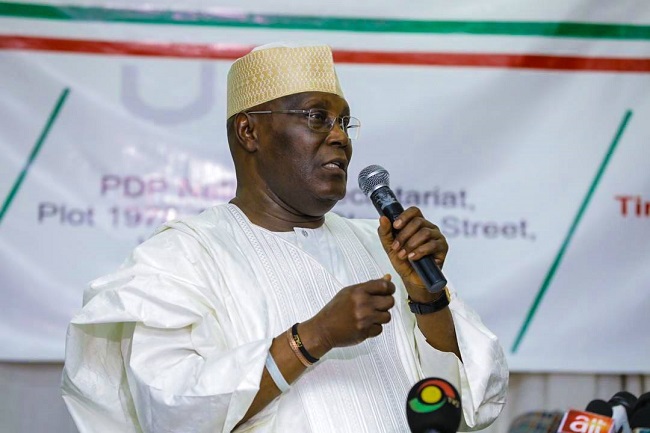I prepared a £7,000 voucher for Balewa's Rolls-Royce - 88-year-old retired accountant
The Lisa of the Ondo Kingdom, Grand Chief Simeon Oguntimehin, 88, a retired chartered accountant and recipient of the national honor of Officer of the Order of the Niger, talks to PETER DADA about his immediate experience after independence, the current state of the nation, his career and family life
What you grew up?
I was born in this city, Ondo, 88 years ago, precisely on September 12, 1934. My family home is very close to the Cour Lisa in Ayeferere, that is where I was born . I started school at the only kindergarten in town then in Ondo, St. Stephen Infant School, in 1940; then went to St. Stephen's Primary School in Odosida in 1943. I was only there for two or three months when my father fell ill and died. I was eight at the time. By the grace of God, the fight continued and my mother made sure that since my father had put me in school, I had to continue school. I was able to complete the Standard Six. Then I went to the only high school in the Ondo axis, Ondo Boys High School, Ondo, which was founded in 1919. Admission to the school was then very competitive. About 850 of us then sat for the entrance exam because the candidates came from as far away as Kwara and Edo states. By the grace of God, I was admitted and also got the Ondo Native Administration Scholarship.
I finished Ondo Boys High School in 1954. I sat Cambridge exam in fifth grade. In fact, we were the last group to take the Cambridge exam before the introduction of the West African Senior School Certificate Examination. We left on December 16 (1954) and I went to Lagos the same day. It may interest you that on December 30 (1954) I had started to work.
What kind of work did you do?
I moved to Lagos and served the Federal Government in what we then called the Investigative Department; from there I moved on to cash. I was at the Treasury for about two years before leaving for England.
I then started as an unconfirmed third class clerk, because at the time we had what they called a confirmation test and you had to take it three years before your confirmation. I remember one specific case, the first Roll-Royce the Nigerian government bought for Alhaji Abubakar Tafawa Balewa, I prepared the voucher, it was then £7,000.
I was still an unconfirmed third-class clerk when I left for England.
What did you go to England for?
I had a cousin who asked me what I wanted to do after high school. The popular thing at that time was to go to the University of Ibadan, which was then the only university, to study law. Few people knew accounting. It was my cousin who told me about Akintola Williams, who was then the only qualified native accountant in the country. I decided that I wanted to become an accountant; so, I had to go to study in England. It was like a bet because from that time on, you could count the number of native accountants on the fingers of your hand. The majority of accountants in the country were then white men.
How did you finance your studies in the UK?
It was too risky but life is a risk in itself. When I received the (admission) letter, they said: "Okay, we will host you for six months, if you prove that you are someone who could be an accountant, we will retain you and for these six months we are not going to give you I was the first Nigerian and black man to intern in Oxford for accountancy The results came in and they said I passed After the six months they told me did an internship and they paid me £4 per week Out of the £4 my rent was £2 Within a year I passed the intermediate exam Even with this intermediate if I had returned to Nigeria , I would be a senior civil servant, driving a car Within four years I completed the course and returned to Nigeria In 1959 they sent people from Nigeria to those of us in England They said Nigeria was about to gain independence and there were no accountants so they wanted to give us a bour se, with a bail condition of five years. It was the normal thing then. I told my manager about the offer, but he said I wasn't the civil servant type. So, I didn't take the scholarship, but by the grace of God, I didn't fail any of my exams. By 1961 I was done and back in Nigeria.
What prompted your decision to return to Nigeria?
A year earlier, Nigeria had gained independence and we had high hopes and there were many opportunities. I arrived in Nigeria on a Sunday and on Monday I went to choose the color of the car I wanted...

The Lisa of the Ondo Kingdom, Grand Chief Simeon Oguntimehin, 88, a retired chartered accountant and recipient of the national honor of Officer of the Order of the Niger, talks to PETER DADA about his immediate experience after independence, the current state of the nation, his career and family life
What you grew up?
I was born in this city, Ondo, 88 years ago, precisely on September 12, 1934. My family home is very close to the Cour Lisa in Ayeferere, that is where I was born . I started school at the only kindergarten in town then in Ondo, St. Stephen Infant School, in 1940; then went to St. Stephen's Primary School in Odosida in 1943. I was only there for two or three months when my father fell ill and died. I was eight at the time. By the grace of God, the fight continued and my mother made sure that since my father had put me in school, I had to continue school. I was able to complete the Standard Six. Then I went to the only high school in the Ondo axis, Ondo Boys High School, Ondo, which was founded in 1919. Admission to the school was then very competitive. About 850 of us then sat for the entrance exam because the candidates came from as far away as Kwara and Edo states. By the grace of God, I was admitted and also got the Ondo Native Administration Scholarship.
I finished Ondo Boys High School in 1954. I sat Cambridge exam in fifth grade. In fact, we were the last group to take the Cambridge exam before the introduction of the West African Senior School Certificate Examination. We left on December 16 (1954) and I went to Lagos the same day. It may interest you that on December 30 (1954) I had started to work.
What kind of work did you do?
I moved to Lagos and served the Federal Government in what we then called the Investigative Department; from there I moved on to cash. I was at the Treasury for about two years before leaving for England.
I then started as an unconfirmed third class clerk, because at the time we had what they called a confirmation test and you had to take it three years before your confirmation. I remember one specific case, the first Roll-Royce the Nigerian government bought for Alhaji Abubakar Tafawa Balewa, I prepared the voucher, it was then £7,000.
I was still an unconfirmed third-class clerk when I left for England.
What did you go to England for?
I had a cousin who asked me what I wanted to do after high school. The popular thing at that time was to go to the University of Ibadan, which was then the only university, to study law. Few people knew accounting. It was my cousin who told me about Akintola Williams, who was then the only qualified native accountant in the country. I decided that I wanted to become an accountant; so, I had to go to study in England. It was like a bet because from that time on, you could count the number of native accountants on the fingers of your hand. The majority of accountants in the country were then white men.
How did you finance your studies in the UK?
It was too risky but life is a risk in itself. When I received the (admission) letter, they said: "Okay, we will host you for six months, if you prove that you are someone who could be an accountant, we will retain you and for these six months we are not going to give you I was the first Nigerian and black man to intern in Oxford for accountancy The results came in and they said I passed After the six months they told me did an internship and they paid me £4 per week Out of the £4 my rent was £2 Within a year I passed the intermediate exam Even with this intermediate if I had returned to Nigeria , I would be a senior civil servant, driving a car Within four years I completed the course and returned to Nigeria In 1959 they sent people from Nigeria to those of us in England They said Nigeria was about to gain independence and there were no accountants so they wanted to give us a bour se, with a bail condition of five years. It was the normal thing then. I told my manager about the offer, but he said I wasn't the civil servant type. So, I didn't take the scholarship, but by the grace of God, I didn't fail any of my exams. By 1961 I was done and back in Nigeria.
What prompted your decision to return to Nigeria?
A year earlier, Nigeria had gained independence and we had high hopes and there were many opportunities. I arrived in Nigeria on a Sunday and on Monday I went to choose the color of the car I wanted...
What's Your Reaction?






















